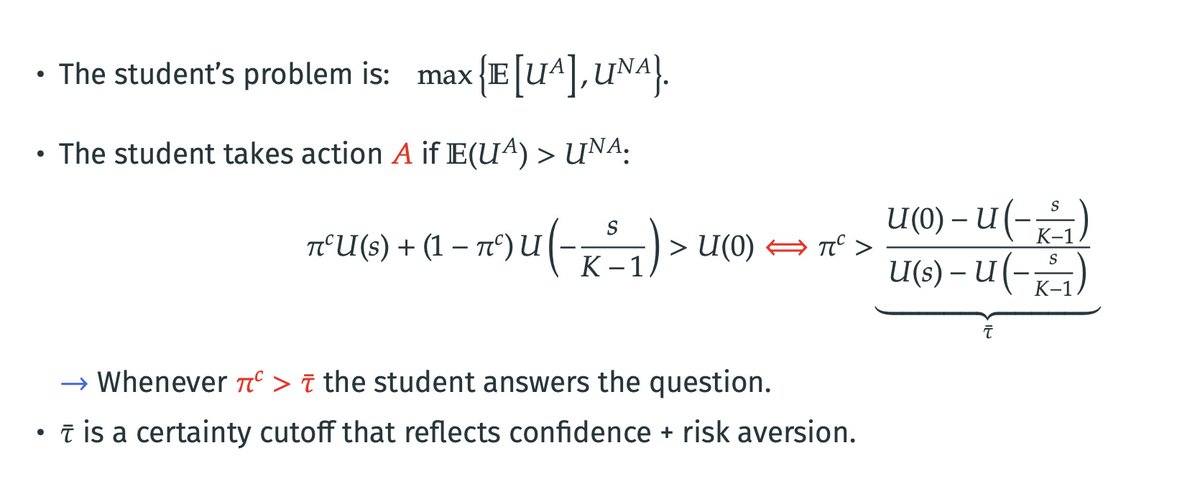
Esma Özer Öztürk
@e_ozerr
Followers
613
Following
775
Media
11
Statuses
130
PhD Student @PennStateEcon; econ&pols'20 @UniBogazici; economics of best of both worlds: experiments + structural modeling; education, human capital.
State College
Joined September 2020
RT @JesusFerna7026: Yesterday, I argued that Turkey’s TFR was 1.48 in 2024, well below replacement level, and has been falling fast since 2….
0
129
0
RT @SPelinAkyol: What do multiple-choice tests really measure? We explore this in a new @nberpubs paper with Kala Krishna & @e_ozerr. We fi….
0
2
0
@SPelinAkyol For a deeper dive, my co-author @SPelinAkyol breaks down the approach, findings, and implications of our study in this podcast episode with Matt Nolan:.
0
0
0
@SPelinAkyol Our counterfactuals show: optimal exam design depends on which part of the ability distribution you care about. Time limits matter. AND: sorting within gender may better reflect true ability—due to differences in signal production.
1
0
0
@SPelinAkyol We model signal quality as a function of ability, question difficulty, and time constraints. The estimation reveals: gender differences aren’t due to risk preferences. They come from differences in how signals are produced under time pressure.
1
0
0
@SPelinAkyol To understand these patterns—especially the gender gap—we estimate a structural model of how students approach multiple-choice questions. Students receive noisy signals for each option. If no option stands out enough, they skip. Skipping is shaped by confidence and risk aversion.
1
0
0
@SPelinAkyol The results? Three takeaways:. More time = higher scores & less skipping (unsurprising). Effects are concentrated in “within reach” questions—low performers gain on easy Qs, high performers on hard Qs. Score gains are larger for males, driven by greater reductions in skipping. 🤔
1
0
0
@SPelinAkyol Motivated by the non-monotonic findings of a natural experiment in Türkiye (which reduced time pressure in a national exam), we designed our own experiment: a multiple choice test with negative marking and differential time limits, administered to high school students.
1
0
0
Time-constrained choices are everywhere—exams, contests, tasks at work. But how much do time limits really matter?. This project began as my third-year paper—and my first time running an experiment. It's now an NBER WP joint with @SPelinAkyol & Kala Krishna. 🧵
1
0
10
RT @S_Stantcheva: One challenge for trade policy, is that the benefits to consumers (like lower prices) feel vague & abstract—it's hard to….
0
103
0
RT @jenniferdoleac: Christelle Zozoungbo. JMP: "How Gender and Birth Order Affect Educational Attainment Inequality within Families: Eviden….
0
8
0
RT @NobelPrize: BREAKING NEWS.The Royal Swedish Academy of Sciences has decided to award the 2024 Sveriges Riksbank Prize in Economic Scien….
0
10K
0





